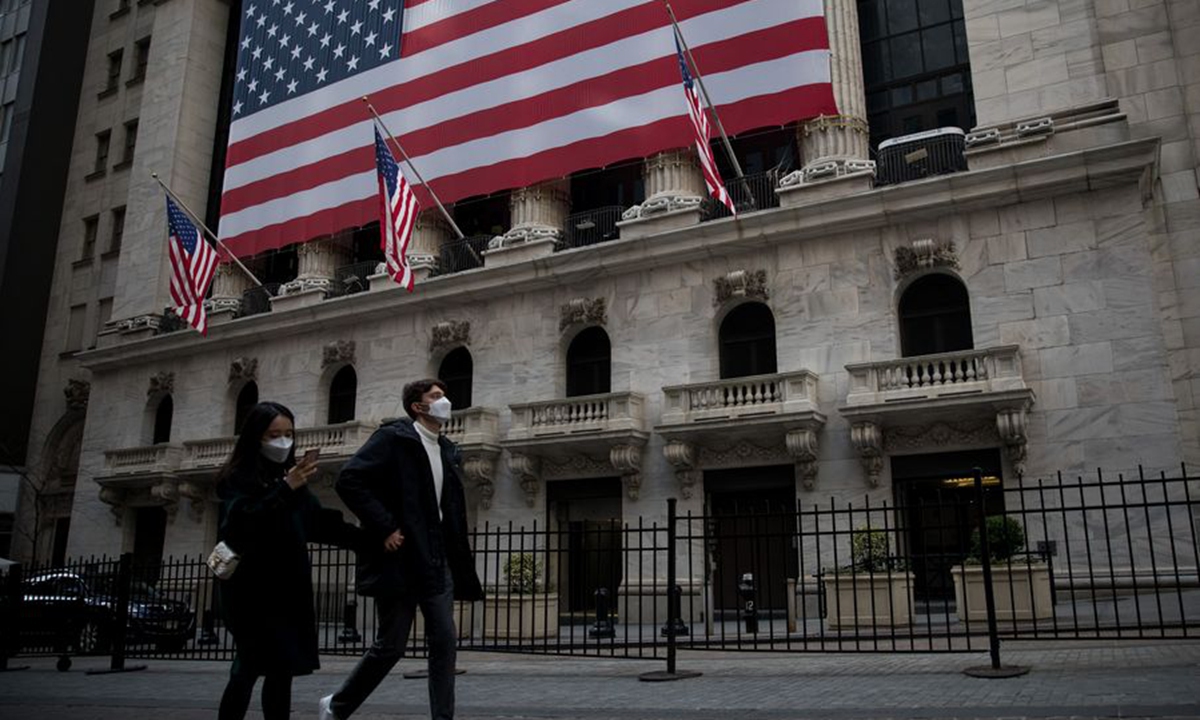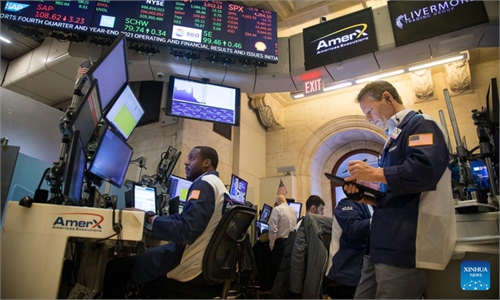
Pedestrians wearing face masks walk past the New York Stock Exchange in New York, the US. Photo: Xinhua
A series of positive signals about reaching a consensus on China-US audit deal are emerging from both sides. Citing anonymous sources, the Financial Times on Thursday reported that China is preparing to make a so-called "concession" so as to conclude the deal with the US' Securities and Exchange Commission (SEC) to defuse the "US delisting threat".
The development is being seen as one of the latest positive signs to resolve the contentious audit issue, however, one thing needs to be corrected is that rather than one side's "concession", the deal needs efforts from the regulators from China and the US so it could benefit the operation of both capital markets.
Citing sources close to the regulators, Chinese domestic news sites reported that senior officials from Chinese and the US held a meeting on Thursday. The two sides plan to further strengthen communication and reach cooperation arrangements within the framework of their respective laws at the earliest.
Earlier on Wednesday in Beijing, the State Council's Financial Stability and Development Committee convened an important meeting, in which the committee vowed to support Chinese enterprises' desire to get listed abroad. It said that the Chinese and US regulators have maintained good communication and made positive progress, and they are working on a concrete plan to resolve the audit issue.
The news has been warmly embraced by investors from the US and China, with both markets rallying strongly. The Nasdaq Golden Dragon China Index jumped 33 percent on Wednesday. Pinduoduo surged 56.1 percent, Bilibili rose 47.6 percent, while Alibaba, Baidu and JD.com rose more than 36 percent.
It is obvious that cooperation is in the best interest of both markets; and China is not alone in seeking a deal to solve the audit difference. The huge growth potential of Chinese enterprises is clear for all to see as the country has been a major force driving the global economic growth.
Instead of one party making so-called "concession" to reach a deal, the valid approach is the two working out a framework that is practical and takes consideration of the interests of both. The framework could meet the normal audit needs of the US, and at the same time, it could secure the integrity of China's data security.
For a long period of time, the financial audit quality of US-listed Chinese stocks has been a concern of Chinese and US regulators. However, there are differences between the two on the law enforcement methods of cross-border audit supervision and the handover of audit working papers.
Despite the differences, the Chinese and American regulators have cooperative basis as the two inked a memorandum of law enforcement cooperation in May 2013. Their negotiation encountered a setback during the previous Trump administration which launched a reckless tariffs war with China, and placed a number of Chinese technology companies on its sanctioning list.
As many American investors have bought shares of Chinese companies listed in the US, it is wise for the two countries' regulators to meet each other halfway to resolve the audit issue so that investors on both sides will benefit.


